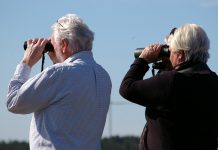June 2012 - Researchers are encouraging primary care physicians to screen for obstructive sleep apnea in patients with Type 2 diabetes. They found that in a small sample of clinic patients, the risk for sleep apnea was higher among diabetics compared with non-diabetics, and that sleep apnea seemed to be associated with carbohydrate craving.
Their study, being presented today at SLEEP 2012, screened 55 patients for diabetes, OSA and carbohydrate cravings. More than half of the patients were diabetic. Among the diabetic patients, the prevalence of OSA was 82 percent, and diabetics had almost double the risk of carbohydrate craving than non-diabetics. In addition, researchers found that patients with OSA were almost twice as likely to have high carbohydrate craving than patients without sleep apnea.
"This study provides an indication of the magnitude of the associated risk between sleep apnea and self-reported carbohydrate craving in the diabetic population," said study co-investigator Mahmood Siddique, DO, clinical associate professor of medicine at the Robert Wood Johnson Medical School in New Brunswick, N.J.
"Previous studies have shown that sleep deprivation may lead to changes in hormones that regulate appetite and hunger," Siddique said. "These hormonal changes can lead to significant craving for high-calorie carbohydrates such as cookies, candy, breads, rice and potatoes. The current study supports previous findings by validating this in a community sample of diabetics."
The study, conducted by the Sleep and Wellness Medical Associates LLC, is one of the first cross-sectional clinic-based studies to show an association between OSA and self-reported carbohydrate craving among patients with Type 2 diabetes.
Continue Reading Below ↓↓↓
"Current national guidelines on the management of diabetes need to consider sleep apnea as an independent risk factor more vigorously," said principal investigator Anthony Cannon, MD, American Diabetes Association regional president for central and southern Pennsylvania and southern New Jersey. "The management of patients with diabetes and or metabolic syndrome based solely on pharmacotherapy, exercise and nutritional modifications without taking into account the risk of sleep apnea may not lead to optimal outcomes for patients suffering from these chronic diseases."
"Clearly, a greater awareness among physicians is needed, as sleep apnea is often undiagnosed by primary care physicians," Cannon said. "Public policy can play a key role in the educational awareness of the association between sleep apnea and diabetes among both physicians and patients."
The abstract "Association of sleep apnea and carbohydrate craving among diabetics" was presented at SLEEP 2012, the 26th annual meeting of the Associated Professional Sleep Societies (APSS) in Boston.
Source: American Academy of Sleep Medicine









